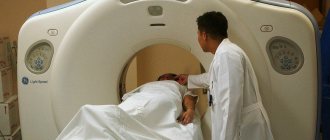- Influence of gastric cancer stage on prognosis and choice of treatment
- Why is chemotherapy needed after surgery?
- When does chemotherapy start after surgery and how long does it last?
- In what cases is chemotherapy useful before and after surgery?
- What are cycles?
- Chemotherapy drugs
- Chemotherapy for gastric cancer with metastases
- Targeted drugs
- In case of recurrence of stomach cancer
- Advantages of chemotherapy at Euroonco
- Chemotherapy course prices
Chemotherapy drugs are medications that damage cancer cells or inhibit their proliferation. They are prescribed for many malignant tumors. Today, chemotherapy (CT) for gastric cancer occupies a more worthy place than decades ago, complementing surgical treatment and even, in some cases, making the operation itself possible. When choosing a treatment method, the oncologist takes into account the spread of the cancer, that is, the stage of the disease, as well as some other factors. [1]
Influence of gastric cancer stage on prognosis and choice of treatment
The successes of chemotherapy have not changed the main thing - it is impossible to cure cancer without surgery. The most favorable prognosis will be only for a very small malignant lesion - no higher than stage 1A, when cancer cells have not penetrated into the muscles of the stomach wall and have not reached the lymph nodes. With this type of cancer, nine out of ten patients can expect a long life without additional drug treatment.
If the cancer has spread beyond the stomach and invaded the surrounding tissue, resection of neighboring organs is performed. Conservative (drug) antitumor therapy improves the overall outcome, allowing eight out of ten patients with stage 2–3 and initially operable cancer to live for more than 3 years, and the majority will not have signs of the disease during these years.
In a very common process, surgery plus chemotherapy improves the prognosis, but only half of patients can hope to live long enough. The prognosis for stage 4 cancer with metastases leaves much to be desired. [2,3,4]
What complications occur after HIPEC?
Any surgical intervention on the abdominal organs can be complicated by bleeding, infection of the postoperative wound, and reactive inflammation of the internal organs. Complications are determined by the extent of surgical intervention, the initial condition of the patient, the localization of metastatic foci and biochemical changes that arise due to the presence of a malignant process in the body.
It is clear that neither chemotherapy nor hyperthermia improves the postoperative recovery process or helps maintain immunity, however, the incidence of fatal complications is low - does not exceed 3%. Reactions caused by the toxic effects of chemotherapy are usually less pronounced than with intravenous administration.
+7
Call or leave a request
Request a call!
Why is chemotherapy needed after surgery?
This type of antitumor treatment is called adjuvant; it is aimed at cancer cells circulating in the blood and lymph that can become a source of metastases or relapse.
Clinical studies have shown that taking the chemotherapy drug capecitabine for stage 2–3 gastric cancer within a year after surgery increased by 10% the number of patients who lived for more than 3 years. Six months of combination chemotherapy led to an increase in the group of those who lived more than 3 years without relapse and metastases by 15%. [5,7]
Symptoms most characteristic of the disease
Symptoms of stomach cancer in the early stages are included in the so-called. symptom complex of “small signs”:
- Discomfort, bloating after eating.
- Feeling of quick satiety, fullness of the stomach.
- Causeless loss of appetite.
- A change or distortion in taste preferences may also be the first signs of early stage stomach cancer.
- Dull pain in the epigastrium, pulling sensations, more often after eating, are often found in stomach cancer as symptoms, the first signs.
Stomach cancer symptoms, first signs in women and stomach cancer symptoms, first signs in men are no different. A much more important factor determining the clinical picture of stomach cancer is the presence of predisposing diseases - chronic atrophic gastritis (CAG), gastric polyps, ulcers. Stomach cancer - how to determine the appearance of the disease against the background of the listed ailments? The only sure way to recognize stomach cancer in the early stages is to conduct an endoscopic examination (EGD) with a biopsy. The study will help determine whether the symptoms are a sign of stomach cancer in women or men or whether they are just similar to stomach cancer; psychosomatic (psychosomatic) causes may also be similar to a malignant neoplasm.
Signs and symptoms in later stages
Symptoms of stomach cancer in men and women caused by a large tumor affecting the general condition of the body:
- Vomiting in stomach cancer is often caused by either intoxication (poisoning of the body) from tumor decay products or significant difficulty in the passage of gastric contents into the intestines (reflex contractions begin in the overcrowded organ, and food is “pushed out” back).
- Vomiting with blood (occurs when the tumor is destroyed).
- Pain with stomach cancer in the later stages may intensify or maintain its previous intensity.
- Weight loss, exhaustion.
- Nausea.
- Anemia.
- An increase in the volume of the abdomen is caused by metastases from stomach cancer in the peritoneum. Metastatic cancer tumors disrupt the processes of reabsorption (reabsorption of fluid in the abdominal cavity).
Other manifestations caused by secondary tumors (metastases). How to determine stomach cancer symptoms caused by metastases - it depends on their location. Most often, metastases are found in the lymph nodes (pararectal, axillary, supraclavicular), in the liver, lungs, ovaries, and kidneys.
Stomach cancer photo
Stomach cancer, first symptoms - how long do they live after they appear. The prognosis in all cases is very individual; as always, the degree of differentiation of cancer cells and the degree of tumor spread are decisive.
In what cases is chemotherapy useful before and after surgery?
The use of chemotherapy in two blocks - before and after surgery or perioperatively is standard in European countries; Russian oncologists predominantly use postoperative drug treatment, which is due to the organizational characteristics of the state oncology service. For technically inoperable stomach cancer without metastases, 3 courses are carried out according to regimens of 2 or 3 drugs, then, if successful, surgery is performed and chemotherapy treatment continues. The total number of courses is 6.
In studies, this type of antitumor treatment led to an almost twofold increase in the number of patients surviving five years, including without signs of disease relapse. [1,4]
Administration of chemotherapy drugs into the abdominal cavity
The procedure begins with the gradual removal of excess fluid from the abdominal cavity. It is not recommended to evacuate a large volume of fluid in one procedure. At the same time, vital salts and proteins are replaced.
Chemotherapy drugs are injected into the abdominal cavity, drained of ascites. The choice of chemotherapy depends on the type of cancer. The most commonly used cytostatics are: cisplatin, mitomycin, paclitaxel, bleomycin. After 6–12 hours, the medications are removed.
What are cycles?
Chemotherapy drugs attack not only tumor cells, but also healthy cells in which division processes are actively occurring. After the body has received the next dose of medicine, it needs to “catch its breath” and recover. Therefore, chemotherapy is always carried out in cycles: after the next administration of drugs there is a break. For stomach cancer, chemotherapy drugs are usually administered intravenously, sometimes taken in tablet form. Cycles can last 14, 21 or 28 days.
Chemotherapy drugs
More than a dozen chemotherapy drugs are effective for malignant tumors of the stomach and intestines, almost all of them are used in different combinations. Combinations of three drugs are preferable in terms of results, but their tolerability is somewhat worse, so such regimens are prescribed to patients without chronic diseases with good general health.
In elderly patients with concomitant diseases and poor initial health, you can initially use one drug and, when the condition improves, switch to a two- or three-component regimen.
Euroonco doctors use chemotherapy drugs recommended by the American National Comprehensive Cancer Network (abbreviated as NCCN, USA).
The most commonly used combination of fluoropyrimidine derivatives (fluorouracil, capecitabine) with platinum drugs (cisplatin, oxaliplatin) and the antitumor antibiotic epirubicin or docetaxel. Two-component regimens include fluoropyrimidines with irinotecan or platinum drugs. [1,2,10]
Equal effectiveness of all regimens was noted; they differ only in complications and are completely interchangeable, that is, if one regimen is intolerable, you can continue treatment with another.
Long-term (over 24 or 48 hours) administration of fluorouracil through a special infusion system gives better results than rapid intravenous administration (stream) together with the “amplifier” leucovorin. If a daily infusion of fluorouracil is not possible, then it is better to take capecitabine tablets for 2 weeks.
The main condition for the success of chemotherapy is compliance with dosages and intervals between courses. [2.11]
Modes
If it is necessary to increase the intensity of chemotherapy, then increase the dose of the drug, this is the so-called high-dose therapy , or shorten the interval between chemotherapy courses, that is, introduce compacted regimens.
There are also metronomic regimens for the use of cytostatic drugs, when small doses of drugs are administered, but continuously for a long time.
After each course of chemotherapy treatment, a certain break is required to restore the body . As a rule, repeated courses of chemotherapy are carried out every three to four weeks, this is the period during which the indicators of leukocytes, platelets, etc. are restored.
When using some chemotherapy drugs, for example, nitroso derivatives, this interval increases to 6 weeks.
The duration of treatment and the number of courses of chemotherapy depend on the type of tumor, the characteristics of the disease, and how the body responds to treatment. Sometimes it becomes necessary to stop or change treatment, and this decision is made by the attending physician.
Chemotherapy for gastric cancer with metastases
At this stage, cancer is not subject to surgical treatment; an exception is possible only if the stomach is technically removed and metastases to the ovaries without cancerous lesions of any other organs or tissues. For cancer complicated by bleeding, minimal palliative surgery is performed. A patient with a metastatic stage receives chemotherapy according to any standard regimen that he can tolerate.
The use of monotherapy—one drug—gives the worst results. Two-drug regimens with less toxicity are preferred, but in clinical studies only three-drug combinations have demonstrated an increase in survival.
If the patient feels well and does not have concomitant chronic diseases, then it is better to fight for life with three chemotherapy drugs at once. You can start chemotherapy with one drug, and when your condition improves, switch to more effective combinations.
If the effect is good, no more than 6–8 courses are carried out, then the patient is observed. If cancer growth resumes after 3 months, a second line of therapy can be started with the same combination that was used initially. If the process progresses in the next 3 months after completing chemotherapy courses, a complete change in the regimen is recommended; it does not include previously used drugs - most likely, the tumor has become resistant to them. [2,12,13]
Contraindications and side effects
The disadvantage of chemotherapy treatment is the toxicity of the drugs used. Since they are administered through the circulatory system, they have a negative effect on both the malignant tumor and the body as a whole. There are also many conditions that limit (exclude) the possibility of treatment with chemotherapy:
- pregnancy;
- cachexia (exhaustion);
- severe cardiovascular, hepatic or renal failure;
- decompensation of diabetes mellitus;
- leukopenia (lack of leukocytes in the blood - less than 3 billion/l);
- thrombocytopenia (lack of platelets - less than 1 billion/l);
- individual negative reactions to different drugs.
These are cases when it is necessary to consider alternative options for treating stomach cancer.
The destructive mechanism of action of chemotherapeutic drugs also manifests itself in healthy parts of the body, since rapidly dividing cells (these form the structure of a malignant formation) are found in the bone marrow, hair, gastrointestinal epithelium, etc. Depending on which organ or system reacts more strongly to the administered drugs, certain side effects appear.
- Hematopoietic: the level of production of main blood cells (erythrocytes, leukocytes, platelets) decreases.
- Digestive: loss of appetite, nausea, vomiting, other dyspeptic effects, as well as impaired gastrointestinal motility.
- Skin: hair loss, itching, pigmentation.
- Nervous: headaches and dizziness, depression, sleep disturbances, negative changes in the functioning of the visual and auditory systems.
- Cardiovascular: arrhythmia, deviations of blood pressure in any direction from the normal value, myo- or pericarditis.
Negative manifestations in the functioning of other organs and systems are possible. At the same time, the protective function of the immune system is reduced, and therefore it is extremely important to comply with the sanitary and epidemiological regime, since any new disease will be transmitted in a severe form.
Targeted drugs
In addition to classical chemotherapy, targeted drugs are used for malignant tumors of the stomach. They act specifically on specific target molecules that play an important role in the survival and growth of a malignant tumor.
Ramucirumab (Cyramza) blocks the vascular endothelial growth factor (VEGF) receptor on the surface of the cells lining the inside of blood vessels. Tumor cells produce VEGF in order to stimulate the growth of new blood vessels, because they need a lot of oxygen and nutrients.
Ramucirumab is administered as a solution intravenously through a drip over 1 hour, every two weeks on the first day of chemotherapy.
Trastuzumab blocks the membrane protein HER2, which is located on the surface of cells in the gastric mucosa. If there is a lot of HER2, it activates the proliferation of tumor cells. Trastuzumab is administered intravenously in parallel with chemotherapy. [2.14]
Methods of using chemotherapy drugs
- Systemic chemotherapy Drugs are administered orally (orally), subcutaneously, intravenously, intramuscularly, or rectally. Systemic chemotherapy involves affecting the entire body.
- Regional chemotherapy refers to the effect of a cytostatic drug in elevated concentrations on the tumor mass with the limitation of its entry into other organs by injection into the vessels feeding the tumor (for example, in melanoma).
- Local chemotherapy Drugs in the form of ointments or solutions are applied to superficial tumor foci (skin ulcers), injected into the serous cavities (ascites, pleurisy), the spinal canal (intrathecally) for damage to the meninges, and intravesically for bladder tumors.
In case of recurrence of stomach cancer
As with primary cancer, surgical removal is considered first. If surgical intervention is technically impossible, then drug therapy is used with or without radiation. The principles of chemotherapy do not change.
Removing part or all of the stomach causes irreparable damage to the body. In addition, a long course of chemotherapy leads to all sorts of complications, and this radically affects the patient’s quality of life. To minimize the toxicity of chemotherapy drugs, the doctor must select them correctly, prescribe optimal doses and frequency of administration. [1,2]
Find out the exact cost of treatment
In Euroonko clinics, preliminary medication preparation is carried out to reduce complications, and the patient receives a special diet throughout the entire treatment period - nutritional support that promotes rapid recovery. Each of our patients receives an individual program of chemotherapy and rehabilitation support, and this helps to significantly improve treatment results.
We know how to help, even with advanced metastatic stomach cancer. If the patient cannot be cured, at least you can try to prolong his life as much as possible and relieve him of painful symptoms, slow down the growth of the tumor for a while, and reduce its size. Make an appointment with an oncologist.
What diseases does intraperitoneal chemotherapy help with?
At the moment, there is evidence of the effectiveness of hyperthermic intra-abdominal chemotherapy for primary peritoneal tumors and its metastases in cancer arising in various organs.
Primary peritoneal tumors:
- Mesothelioma;
- Pseudomyxoma.
Metastases from other organs:
- Colorectal cancer (colon and rectum);
- Ovarian cancer;
- Tumors of the appendix (vermiform appendix);
- Liver cancer;
- Pancreas cancer.
Our expert in this field:
Rudakova Maria Nikolaevna
Deputy Chief Physician, Oncologist-Surgeon, Doctor of Medical Sciences
Doctor of Medical Sciences
Experience: More than 30 years
Call the doctor
Call the doctor
Send documents by email The possibility of treatment will be reviewed by the chief physician of the clinic.
Advantages of chemotherapy at Euroonco
- We undertake the treatment of stomach cancer at stages III–IV. We often receive patients who were considered hopeless in other clinics and sent home to “live out their lives.”
- Euroonco doctors work only with original chemotherapy drugs from Europe and the USA.
- We follow American NCCN treatment protocols.
- We provide chemotherapy courses in combination with other modern cancer treatment methods. Maintenance therapy helps to endure the administration of chemotherapy drugs as comfortably as possible and minimize side effects.
Get a treatment program
Chemotherapy course prices
- Consultation with a chemotherapist— RUB 6,900.
- Carrying out intravesical chemotherapy (without the cost of medications) - RUB 26,400.
- Intraperitoneal chemotherapy (without the cost of medications) - RUB 24,100.
- Immunotherapy (without the cost of medications) - RUB 19,000.
- Intrathecal chemotherapy - RUB 26,600.
- Carrying out hyperthermic intraperitoneal chemotherapy - RUB 352,000.
- Chemotherapy using an infusion pump for 1 day (without the cost of medications) - RUB 22,600.
- Carrying out anti-PD-1 therapy - RUB 423,500.
Book a consultation 24 hours a day
+7+7+78
Bibliography:
- Clinical recommendations. Stomach cancer. Russian Society of Clinical Oncology. – 2022.
- E. C. Smyth, M. Verheij. Gastric cancer: ESMO Clinical Practice Guidelines for diagnosis, treatment and follow-up. Annals of Oncology 27 (Supplement 5): v38–v49, 2016. doi:10.1093/annonc/mdw350
- Clinical recommendations. Stomach cancer. Association of Oncologists of Russia. Russian Society of Clinical Oncology. – 2022.
- Anna Koumarianou, Anastasios Ntavatzikos, Christos Vallilas. Survival Outcomes Following Combination of First-Line Platinum-Based Chemotherapy with S-1 in Patients with Advanced Gastric Cancer. Cancers 2022, 12, 3780; doi:10.3390/cancers12123780.
- Besova N. S., Byakhov M. Yu., Konstantinova M. M., Lyadov V. K., Ter-Ovanesov M. D., Tryakin A. A. Practical recommendations for drug treatment of gastric cancer // Malignant tumors: Practical RUSSCO recommendations #3s2, 2022 (volume 7). pp. 248–260.
- Stomach cancer: educational manual / A. V. Prokhorov [et al.1. - R19 Minsk: BSMU, 2022. - 20 p.
- NCCN Guidelines for Patients. – Stomach cancer, 2022
- Stomach cancer: diagnosis and treatment: method. allowance / A. A. Zakharenko, K. N. Vovin, M. A. Belyaev [etc.]. – St. Petersburg: RIC PSPbSMU, 2018. – 36 p.
- Stomach cancer: epidemiology, prevention, evaluation of treatment effectiveness at the population level. V.M. Merabishvili. Practical Oncology l No3(7) (September) 2001.
- Jaffer A. Ajani MD. Gastric Cancer, Version 3.2016, NCCN Clinical Practice Guidelines in Oncology. Volume 14: Issue 10. Oct 2016. https://doi.org/10.6004/jnccn.2016.0137
- Metastatic gastric cancer: new in drug therapy. L.M. Kogonia, A.G. Kornilov. Almanac of Clinical Medicine No. 29'2013.
- Yoshiyuki Fujiwara, Takeshi Omori. anticancer research 35: 6739-6746 (2015). A Multidisciplinary Approach for Advanced Gastric Cancer with Paraaortic Lymph Node Metastasis.
- A.V. Yankin. Neuroendocrine tumors of the gastrointestinal tract. 2005
- Zheyu Song, Yuanyu Wu, Jiebing Yang. Progress in the treatment of advanced gastric cancer. Tumor Biology, July 2022: 1–7 DOI: 10.1177/1010428317714626.







